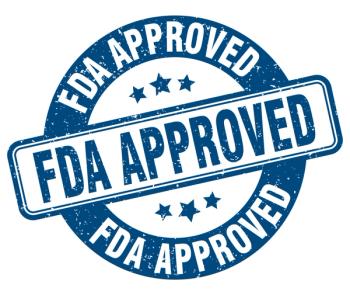
New immunomodulator relieves eczema
Novartis' Elidel is approved for eczema
Rx CARE
New immunomodulator relieves eczema
Atopic dermatitis, also known as eczema, is a chronic skin condition affecting more than 40 million Americans. Essentially, patients with eczema suffer from a disease of irritable skin.
Many eczema patients have high serum IgE levels, suggesting an allergic component. Consistent with this, there is a high correlation between eczema and other atopic diseases such as asthma and hayfever, but an exact immune cause has not yet been identified. Treatment of eczematous skin irritation has relied heavily upon the use of emollients to treat dry skin and on topical corticosteroids to alleviate patient discomfort during acute flare-ups.
One new option for treating eczema involves drugs that possess anti-inflammatory properties but are not corticosteroids. Pimecrolimus (Elidel, Novartis) is a new topical immunomodulator recently approved for treating mild to moderate atopic dermatitis in patients as young as two years of age.
"We've had topical steroids to suppress the immune system for decades. Now, 40 years later, we have a drug in a new class of anti-inflammatories that doesn't lose efficacy over time and works fast. Without head-to-head studies, Elidel appears to be as efficacious as moderate-potency corticosteroids," said Ken Washenik, M.D., Ph.D., director of dermatopharmacology at New York University School of Medicine.
"The mechanism of Elidel is not fully understood," said Bob Cherill, research scientist and associate director of clinical development for Novartis Pharmaceuticals. "But it seems to affect T cells involved with inflammation. The active ingredient blocks T cell activation and prevents the release of inflammatory cytokines." Unlike corticosteroids, which suppress proliferation of a variety of cell types, pimecrolimus operates by a targeted mechanism acting only on T cells behaving aberrantly and may even be specific for skin T cells.
Washenik explained, "Elidel specifically suppresses inappropriately activated T cells, but it does not suppress the uninitiated immune system." This is a key feature since suppression of unstimulated immune cells could lead to widespread systemic immunosuppression, predisposing patients to infections and malignancies. Cherill added, "Elidel has no systemic side effects. It is a good anti-inflammatory, for the skin, but its immunosuppressant activity is very low. Safety is its big advantage [over corticosteroids]."
In addition to its lack of systemic side effects compared with topically applied corticosteroids, pimecrolimus has the advantage of not causing skin atrophy. That means with topical application of pimecrolimus, the skinthe body's first line of defense against the outside worldis not compromised. Additionally, pimecrolimus causes no telangiectasis (spider veins), no purpura (severe bruising), and no striae (stretch marks).
In clinical trials involving both adult and pediatric patients, pimecrolimus relieved itching and redness associated with atopic dermatitis within eight days of treatment initiation. "The incidence of adverse events is low, only one in 10. The drug is disarmingly safe. Only 1.5% of patients discontinued from the study," said Washenik.
Pimecrolimus should be applied to affected areas twice daily. Commenting on the drug, Liza Takiya, Pharm.D., assistant professor of clinical pharmacy at the University of the Sciences in Philadelphia, said, "The mechanism of pimecrolimus is similar to that of tacrolimus [Protopic, Fujisawa], but patient acceptability may be greater with pimecrolimus due to its formulation. Pimecrolimus is a cream not an ointment. An ointment is greasy, and patients can always feel it on their skin."
Washenik said that, in time, "immunomodulators such as pimecrolimus will become first-line therapy for itchy, rashy, eczema-type skin problems. There will eventually be a big line of these types of products, just as there are many topical corticosteroids." He is enthusiastic about the addition of pimecrolimus to therapeutic options for treating atopic dermatitis. "I know a drug is a winner when I wonder how I'm going to get it back from patients at the end of a clinical study," he said.
Kelly Dowhower Karpa, R.Ph., Ph.D.
The author is a clinical writer based in the Philadelphia area.
TIPS TO REMEMBER: Elidel
- Elidel should not be applied to areas of active cutaneous viral infections.
- Patients should minimize or avoid exposure to natural or artificial sunlight (tanning beds or UVA/B treatment) while using Elidel.
- Use of Elidel may cause reactions at the site of application such as a mild to moderate feeling of warmth and/or sensation of burning.
- While patients with atopic dermatitis are predisposed to superficial skin infections including eczema herpeticum (Kaposi's varicelliform eruption), treatment with Elidel may be associated with an increased risk of varicella zoster virus infection (chicken pox or shingles), herpes simplex virus infection, or eczema herpeticum.
Kelly Karpa. New immunomodulator relieves eczema. Drug Topics 2002;2:19.
Newsletter
Pharmacy practice is always changing. Stay ahead of the curve with the Drug Topics newsletter and get the latest drug information, industry trends, and patient care tips.























